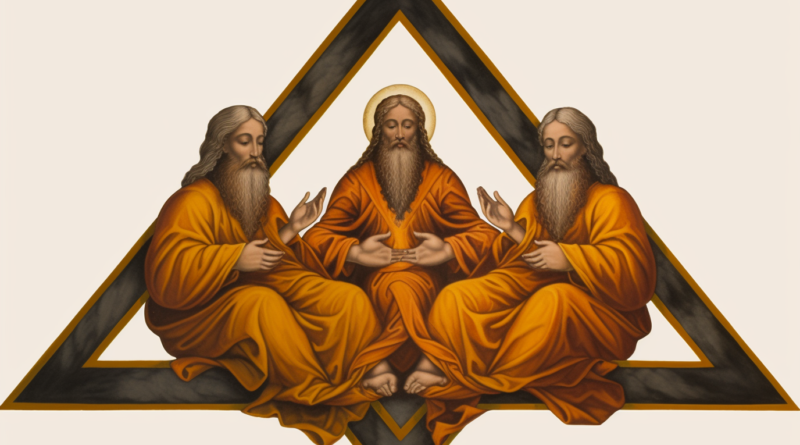Unmasking the Trinity (Part 3) – God and Jesus
The unity of God is a concept that is central to both the Old and New Testaments. It forms the basis of Christianity’s monotheistic faith and is highlighted through various biblical narratives, typologies, and prophecies. The following argument delves into these aspects to provide a compelling case for the oneness of God.
The foundational premise for the unity of God can be found in the Old Testament. Take, for instance, Genesis 3:21, which depicts God’s merciful act of providing Adam and Eve with skin garments, symbolizing a sin-covering sacrifice. This act becomes a template for Christ’s sacrificial role, with Christ presented as the atoning sacrifice for humanity. Nowhere in these biblical narratives is there a hint of a plurality of gods or a Trinitarian conception.
Old Testament typology further bolsters the claim of God’s unity. Jesus is presented through various symbolic roles such as the atoning sacrifice, the priest, the redeemer, and the anointed king, but always as a manifestation of the single God. He is consistently represented as carrying out God’s singular will, not as a separate entity within a divine trinity.
The Old Testament also offers prophecies of a coming Messiah, a human saviour sharing the nature of his brethren. These prophecies, such as that in Deuteronomy 18:18-19, describe a fully human figure, not a divine or semi-divine one. The portrayal of the Messiah as a servant and mediator, as found in Isaiah 42:1, 6-7, seems unnecessary if the Messiah were God Himself.
The New Testament continues to reinforce the unity of God. In John 17, Jesus speaks of the glory he had with the Father “before the world began”, but this does not imply his personal pre-existence. Instead, it may be seen as a metaphorical reference to the predestination of Jesus, a concept already familiar from the Old Testament and other Jewish writings. If God intended to bring something into being, it could be said to “already exist” in God’s plan.
Furthermore, the apostolic testimony of Jesus underscores his humanity. Jesus repeatedly refers to himself as “Son of Man”, a term that emphasizes his human nature. During his trial, he was accused of blasphemy for claiming to be the Messiah and the Son of God, not for claiming to be God. Even in the titles attributed to Jesus, such as “Son of David” and “Son of God”, there is an implicit acknowledgement of his unique birth and existence, not an assertion of his pre-existence or divinity.
This emphasis on Jesus’s humanity, coupled with his role as a mediator and saviour, aligns more consistently with a Unitarian perspective. Jesus is represented as an exceptional human, the firstborn of a new creation and the last Adam who brought life where the first Adam brought death. He is portrayed as the literal Son of God, born of the Virgin Mary, who lived a sinless life and made a perfect sacrifice for sin. There is no contradiction in this Unitarian Christology, no paradox as is often found in Trinitarian interpretations.
In conclusion, the unity of God is a central tenet upheld consistently throughout the Bible. Both the Old and New Testaments present a singular God who acts within human history, not as a plurality of beings. The biblical Christology, rooted in Old Testament principles, portrays Jesus as a unique human figure chosen by God to bring salvation, not as a divine entity. The consistency and coherence of this Unitarian perspective provide a compelling argument for the unity of God.

